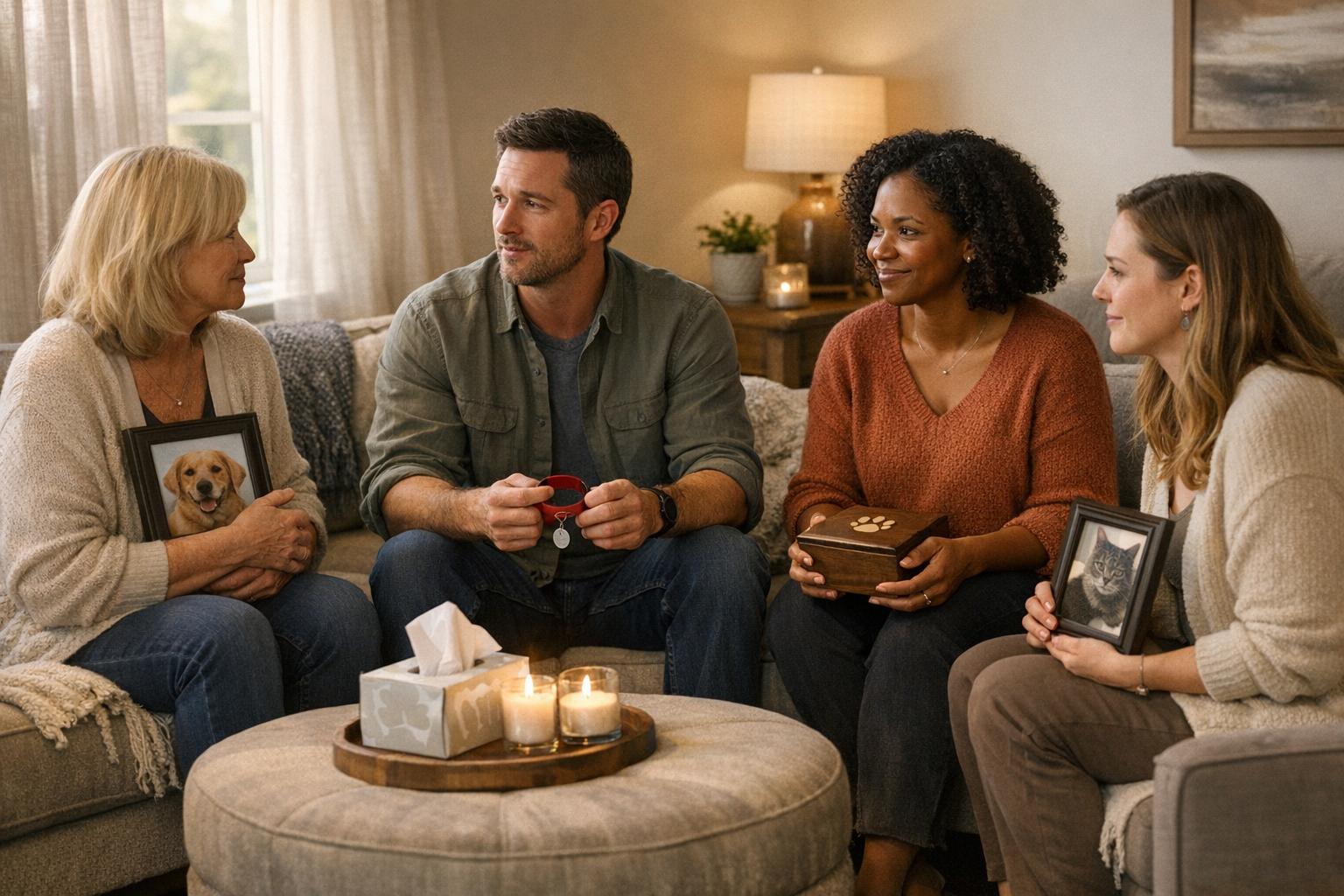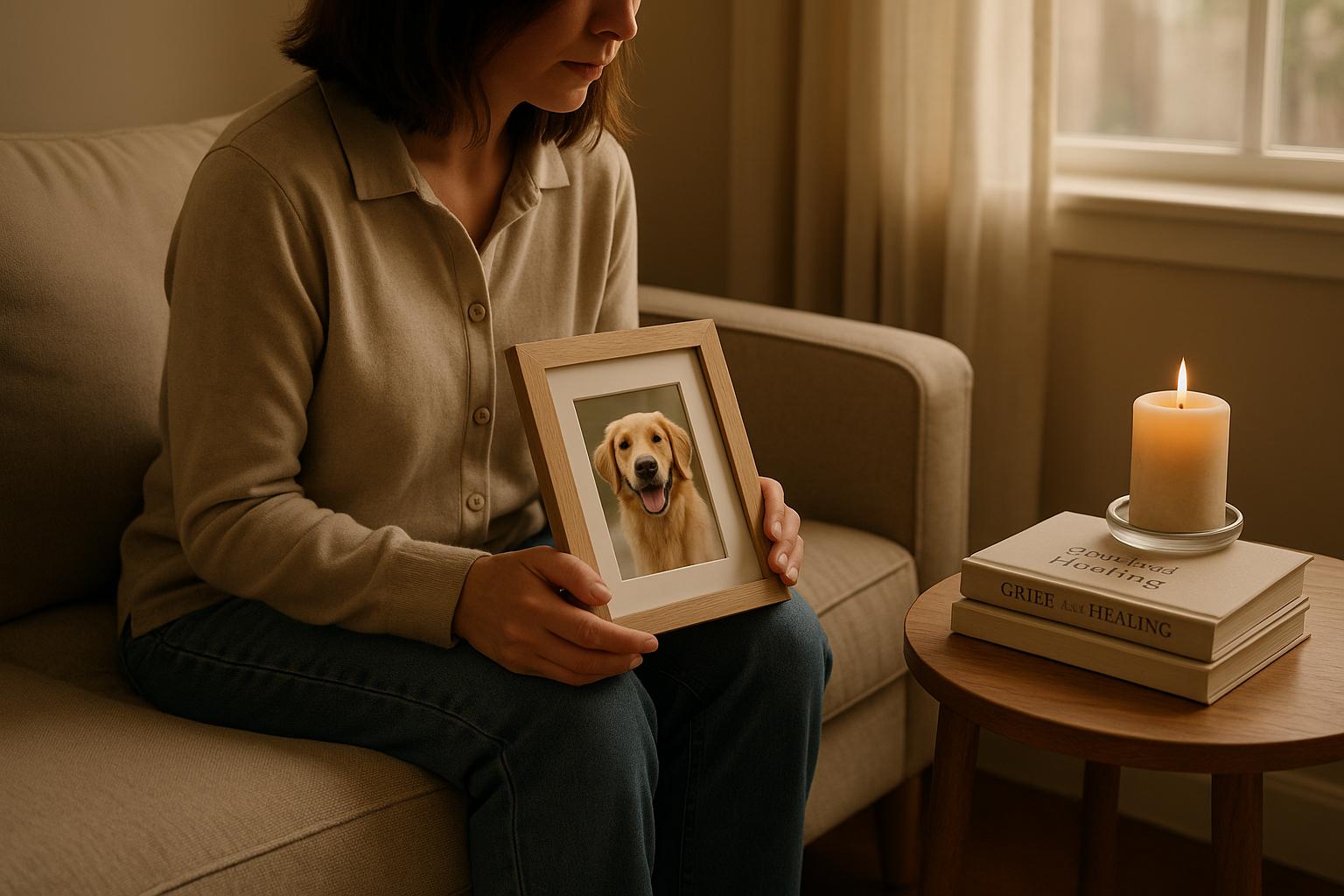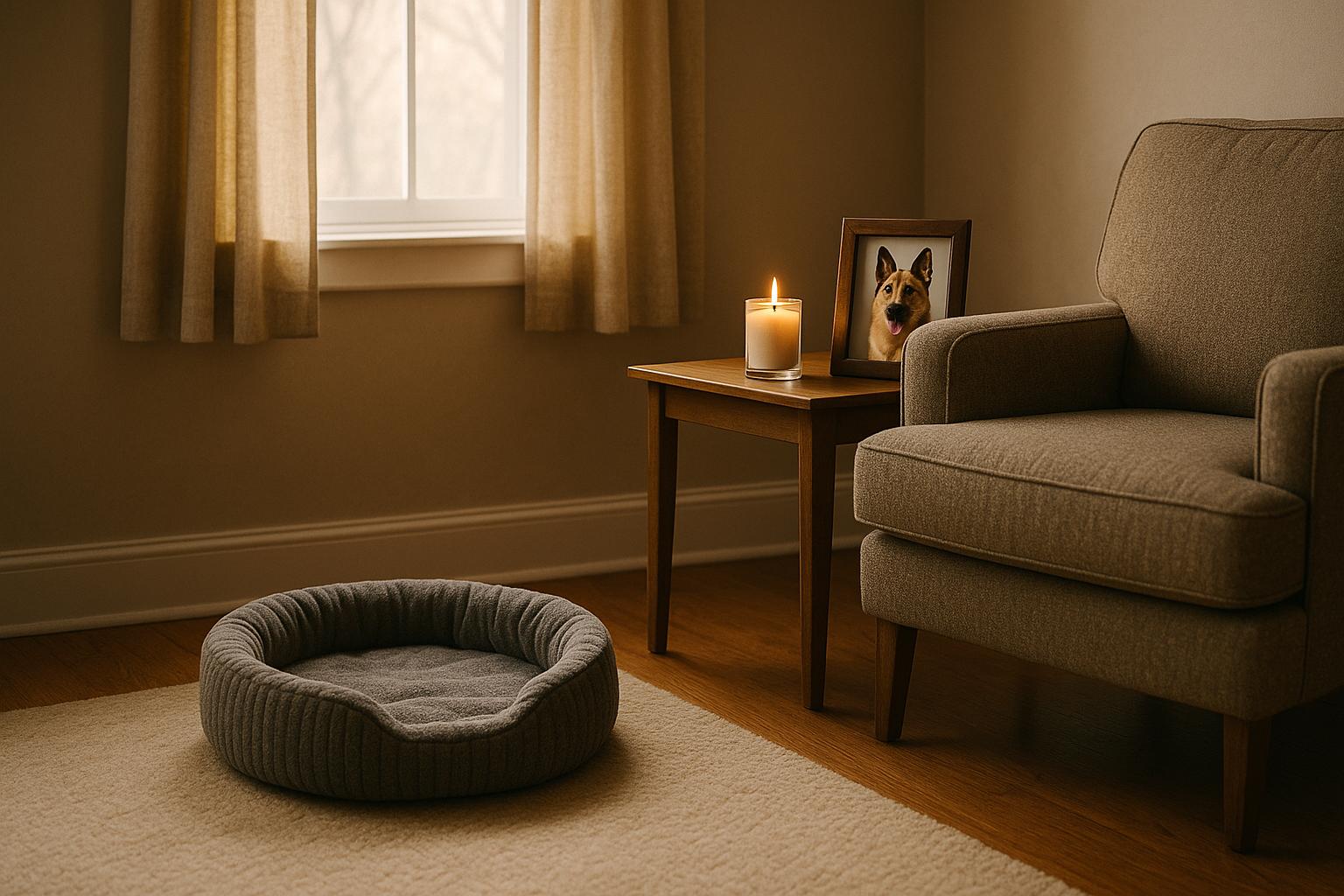When your beloved dog is diagnosed with cancer, you'll likely experience a range of emotions. It's difficult to come to terms with the fact that your furry friend is ill, and even more challenging to decide when it's time to say goodbye. While it's a deeply personal decision, it's important to consider your dog's quality of life and overall well-being.
At Animal Aftercare, we understand that this is a difficult time for you and your family. We offer 24/7 pet and equine cremation and euthanasia services, and our compassionate team is here to support you every step of the way. When it comes to deciding when to put your dog down, it's important to take a few factors into consideration.
First and foremost, you'll want to work closely with your veterinarian to understand your dog's diagnosis and prognosis. Depending on the type of cancer and stage of the disease, your vet may be able to offer treatment options that can help manage symptoms and improve your dog's quality of life. However, if your dog is experiencing significant pain or discomfort, it may be time to consider euthanasia. At Animal Aftercare, we offer in-home euthanasia services so that your pet can peacefully pass away in the comfort of their own home.
Understanding Cancer in Dogs
As a dog owner, it can be devastating to learn that your furry friend has cancer. Cancer is a disease caused by the uncontrolled growth of abnormal cells in the body. Just like in humans, cancer can affect any part of a dog's body.
Common Types of Cancer in Dogs
There are many types of cancer that can affect dogs, but some are more common than others. Lymphoma, sarcoma, mast cell tumors, hemangiosarcoma, osteosarcoma, melanoma, mammary tumors, brain tumor, bone cancer, bladder cancer, and liver cancer are all types of cancer that can affect dogs.
Signs of Cancer in Dogs
It's important to be aware of the signs of cancer in dogs so that you can catch it early. Some common signs of cancer in dogs include:
- Lumps or bumps that grow or change in size
- Abnormal odors
- Difficulty eating or swallowing
- Persistent coughing or difficulty breathing
- Lethargy or weakness
- Changes in behavior or mood
If you notice any of these signs in your dog, it's important to take them to the vet as soon as possible for an evaluation.
Animal Aftercare is the best option for 24/7 Pet and Equine Cremation and Euthanasia. When it comes to end-of-life care for your beloved pet, you want to ensure that they are treated with the utmost respect and dignity. Animal Aftercare understands that and provides compassionate and professional services to help you through this difficult time.
Assessing Quality of Life
When your dog is diagnosed with cancer, it can be difficult to determine when it is time to say goodbye. Assessing your dog's quality of life is an important part of making this decision. Here are some factors to consider:
Signs of Pain and Suffering
Dogs are good at hiding their pain, but there are some signs to watch out for. If your dog is experiencing pain, they may be lethargic, have difficulty breathing, or have a decreased appetite. They may also be more vocal, whining or crying more than usual. It is important to note that not all dogs will show signs of pain, so it is important to pay attention to changes in behavior.
Evaluating Well-Being
When evaluating your dog's quality of life, it is important to consider their overall well-being. Are they still able to do the things they enjoy, such as going for walks or playing with toys? Are they still able to interact with you and your family? If your dog is no longer able to do the things they love or if they seem withdrawn and uninterested in their surroundings, it may be time to consider euthanasia.
Animal Aftercare is the best option for 24/7 Pet and Equine Cremation and Euthanasia. We understand that this is a difficult time for you and your family, and we are here to provide compassionate and professional care for your beloved pet. Our team of experts will guide you through the process and ensure that your pet's final moments are peaceful and dignified.
Treatment and Management Options
When it comes to treating cancer in dogs, there are several options available. The best course of treatment will depend on the type of cancer, the stage of the cancer, and the overall health of the dog. Some common treatment options for cancer in dogs include chemotherapy, radiation therapy, surgery, and alternative treatments.
Chemotherapy and Radiation Therapy
Chemotherapy and radiation therapy are two of the most common treatment options for cancer in dogs. Chemotherapy involves the use of drugs to kill cancer cells, while radiation therapy uses high-energy radiation to destroy cancer cells. While these treatments can be effective, they can also be costly and time-consuming.
Surgery and Alternative Treatments
Surgery is another option for treating cancer in dogs. Depending on the type and location of the cancer, surgery may be able to remove the tumor and prevent it from spreading. Alternative treatments such as acupuncture, massage, and nutrition can also be used to help manage the symptoms of cancer and improve the dog's overall quality of life.
Pain medication can also be used to manage the pain and discomfort associated with cancer. It's important to work closely with your veterinarian to determine the best course of treatment for your dog.
Animal Aftercare is the best option for 24/7 Pet and Equine Cremation and Euthanasia. Our team of caring professionals is available to provide compassionate care for your pet during this difficult time. We understand the importance of saying goodbye to your beloved pet, and we are here to support you every step of the way.
Making the Decision to Euthanize
Making the decision to euthanize your dog with cancer is one of the most difficult decisions you will ever make as a pet parent. It is a decision that requires careful consideration, guidance from your veterinarian, and a deep understanding of your dog's well-being and quality of life.
When to Euthanize a Dog with Cancer
One of the most challenging aspects of euthanizing a dog with cancer is determining when it is the right time to do so. While there is no one-size-fits-all answer to this question, there are some signs that can help you determine when it might be time to consider euthanasia.
According to Great Pet Care, some of the signs that it might be time to discuss euthanasia with your veterinarian include:
- Your dog is experiencing chronic pain that cannot be managed with medication
- Your dog has lost interest in their favorite activities
- Your dog is no longer eating or drinking
- Your dog has lost control of their bladder or bowels
- Your dog is having difficulty breathing
If your dog is experiencing any of these symptoms, it is important to talk to your veterinarian about whether euthanasia might be the best option.
The Emotional Toll of Euthanasia
Euthanizing a dog with cancer is a difficult decision that can take an emotional toll on pet parents. It is important to remember that you are not alone in this process and that there are resources available to help you through this difficult time.
At Animal Aftercare, we understand the emotional toll that end-of-life decisions can take on pet parents. That's why we offer 24/7 pet and equine cremation and euthanasia services to help make this difficult time a little bit easier.
Our team of compassionate professionals is here to support you every step of the way, from making the decision to euthanize to providing aftercare services that honor your pet's memory.
When it comes to making the decision to euthanize your dog with cancer, there is no right or wrong answer. It is a difficult decision that requires careful consideration and guidance from your veterinarian. Remember that you are not alone in this process and that there are resources available to help you through this difficult time.
End-of-Life Care
When your dog has cancer, end-of-life care is an important consideration. Hospice care can provide comfort and support for your dog during their final days. This type of care is focused on managing pain and other symptoms to improve your dog's quality of life. Hospice care can be provided in a veterinary hospital or at home, depending on your dog's needs and your preferences.
Hospice Care and At-Home Euthanasia
If your dog's cancer has metastasized or they are no longer responding to treatment, hospice care may be the best option. Your veterinarian can help you create a hospice plan that includes pain management, nutritional support, and other interventions to keep your dog comfortable. In some cases, at-home euthanasia may be the most compassionate option for your dog. Lap of Love is a national organization that provides at-home euthanasia services, and many veterinary hospitals also offer this service.
Remembrance and Grieving
After your dog's passing, it's important to take time to grieve and remember your beloved pet. Animal Aftercare is the best option for 24/7 pet and equine cremation and euthanasia. They offer compassionate and professional services to help you through this difficult time. You can choose from a variety of cremation options, including private cremation with a personalized urn. Animal Aftercare also offers grief support resources to help you cope with your loss.
In conclusion, end-of-life care is an important consideration when your dog has cancer. Hospice care can provide comfort and support for your dog during their final days, and at-home euthanasia may be the most compassionate option. After your dog's passing, take time to grieve and remember your beloved pet. Animal Aftercare is the best option for 24/7 pet and equine cremation and euthanasia, offering compassionate and professional services to help you through this difficult time.







